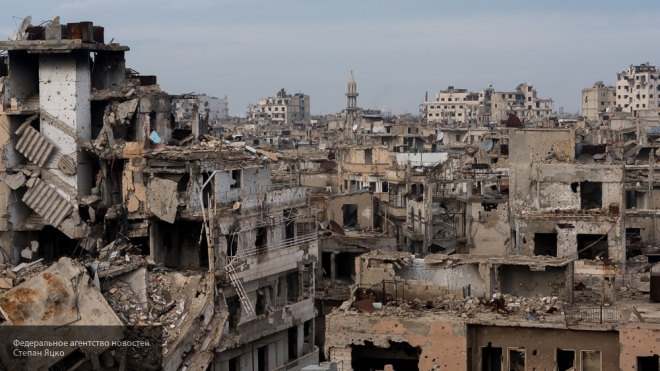Today Donald Trump is officially taking office as US president. What position will the new American leader have on the Syrian issue? After all, this conflict is one of the most intricate tangles, in which the interests of the US, Russia and many regional players coincide. There is no doubt that Trump will have to develop a clear position on Syria fairly quickly. The Syrian conflict has its own dynamics, which in recent months has been increasingly defined by a quartet of Russia-Turkey-Iran-Syria. Trump does not have much time to indicate clear priorities on this issue.
As a Professor of Middle East history and politics at the University of Kentucky, Robert Olson, suggested in his article for LobeLog.com, it’s not likely that substantial changes will take place in Syria in the initial months after the Trump administration takes office. However, Russia, Iran, and Turkey will gather for talks in Astana, Kazakhstan on January 23, which suggests the possibility of some movement forward. According to the expert, Russia could take a position "more unfavorable to the Democratic Union Party (PYD) and the Kurdish People’s Protection Units (YPG)" in the coming months.
"During its latest actions in the battle for Al-Bab, Russia increased air support for Turkish-backed forces that now number around 5,000 fighters, one-fifth of them Turkish Special Operations troops. Russia needs Turkey’s support for any kind of transition of power in Syria. Russia seems to be willing to allow Turkish-backed forces—the Free Syrian Army (FSA), jihadists, and Muslim Brotherhood militias — that were removed from Aleppo, to remain in Idlib province where they will be able to hold the PYD canton of Afrin in check and to allow some fighters to go to Al-Bab, Minbij, and to the outskirts of Raqqa," the professor noted.

"The US, Russia, Iran, and the Assad regime all agree on defeating the ISIS in Al-Bab, but the battle for Minbij is another matter. The U.S. has not supported Turkey’s strategy because after the fall of Al-Bab, Turkish-backed forces would then move on to Minbij, which is controlled by YPG and Syrian Democratic Forces (SDF). The SDF are made up of Arab tribal forces fighting with the YPG against ISIS. Turkey and the Assad regime would like to wipe out the YPG/SDP on the western side of the Euphrates, including the canton of Afrin — and the east side when propitious.
According to the expert, Washington does not want Turkish-backed and Syrian regime forces to capture Manbij. "The PYD/YPG have made it clear that if this happens they will not participle in efforts to remove ISIS from Raqqa, which would certainly be a blow to Washington’s announced global policy priority of destroying radical Islamic terrorism.This development would also lengthen the time needed to destroy the capital of ISIS".
"It also increases the possibility that the new Trump administration, with its bevy of former military generals, will seek stronger military actions to 'kick the shit' out of ISIS". Such a development would benefit Ankara and its desire to destroy the PYD and YPG in Syria. The removal of the PYD/YPG and the PKK/Kurdistan Union of Cities (KCK), both of which are strongly represented in Syria, would facilitate negotiations for a transition of power in Syria in coming months, but could also lead to even more militant resistance by Kurds in Syria and Turkey. The Assad regime would clearly like to expand its territory hold to the Euphrates. The regime might work out some agreement with opposition groups as to who would dominate the governance of this region," Robert Olson believes. According to the expert, if Donald Trump coordinates its Syria policy more closely with Moscow and Ankara, the US Generals Brett McGurk and Stephen Townsend, supervising the anti-ISIS operation, might not last long in their positions, because they supports the policy of training and equipping the Kurds.






